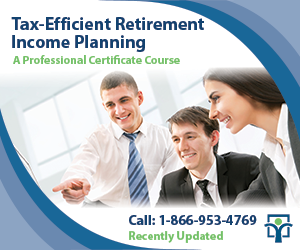Last updated: November 15 2016
CPP Premiums for 2017 Top $5,000

The CRA has announced the maximum CPP pensionable earnings for 2017: $55,300, up from $54,900 in 2016. The employer-employee contribution to the plan is now $5128.20 when maximum contributory earnings are reached.
What this all means in real dollar terms is that, for 2017, the maximum premium is going up to $2,564.10 for each of the employer and employee. If you are self-employed, you pay both portions, so for you the maximum contribution to the CPP will now be over $5,000 for the year: $5,128.20 to be exact.
Newly self-employed taxpayers will need some additional coaching from their advisors on this point, as savings of $427.35 per month are required to fund the required contributions, payable by proprietors with the tax filing deadline for the T1 personal return.
Under Bill C-26, currently before parliament, we’ll see the premiums nearly double over the next ten years. The current premium rate of 9.9% (employer and employee) and basic exemption ($3500) are the same as last year. The planned increase in the rate will start to kick in in 2019: it will rise to 11.9% over a five-year period.
Is it all worth it? While the CPP does offer disability and survivor benefits, death benefits are a paltry $2,500 for single or divorced taxpayers. Survivor benefits also cap out at the recipient’s maximum retirement benefit for the year – that is, one retirement benefit, not two.
And here’s a little food for thought: Contributions of $5,000 annually to a TFSA, indexed at 2% and earning a conservative 5% annually, will accumulate almost $850,000 over 40 years. That’s enough to generate a $46,000 pension over a 25-year retirement. If you die early, the remaining balance goes to your heirs.
 |
The same contributions to CPP will provide a pension of less than $30,000 (for life) but only $2,500 if you die early. Is the CPP the best option for entrepreneurs? It’s a discussion that specialists in tax-efficient retirement income planning need to have with their clients.
To become a certified professional in this type of planning, consider registering for the Knowledge Bureau’s Advanced Tax Efficient Retirement Income Planning Course, available 24/7 by online studies.
©2016 Knowledge Bureau Inc. All Rights Reserved.





